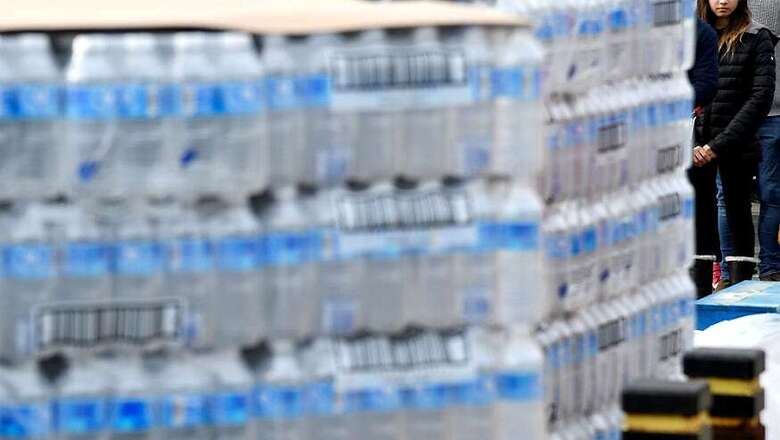
views
New Delhi: Joining the battle against plastic waste, Indian Railways is installing plastic bottle crushing machines at 2,000 stations across the country.
"At a time when plastics in general, and plastic bottles in particular, are being widely recognised as being extremely harmful to the environment, we are undertaking concrete steps to raise awareness to battle the plastic menace," a senior Railways official involved in the cleanliness drive at stations told IANS.
There is a huge consumption of plastic bottles for cold drinks and water every day at stations across the country.
According to a report in 2009 by the Comptroller and Auditor General, approximately 6,289 tonnes of plastic waste is discarded onto India's railway tracks.
The installation of crushers is a step is to prevent travellers from throwing used plastic bottles on the tracks or in the station premises.
The crusher machines would be installed at platforms and at exit points so that passengers who want to discard their plastic bottles can deposit them in the flaking machine. Depending on the volume of plastic bottles deposited the machine automatically starts and stops. The inserted bottles disintegrate into fine pieces of plastic which is then released from a different outlet.
The plastic pieces will be given to the plastic manufacturers, thus saving the landfills from additional plastic pollutants.
All 16 zones and 70 divisions have been instructed to install the plastic bottle crushing machines at 2,000 stations in the first phase, said the official.
Currently, empty plastic bottles are disposed off manually.
There is a need to curb garbage thrown on tracks either by rail commuters or by those staying in illegal slums along the tracks.
The railways has given RITES the responsibility of providing project management consultancy for selecting the agencies for installing and maintaining the crushers.
While smaller stations will be covered under corporate social responsibility spends, the rest of will be done through competitive bidding.
Successful bidders will have an eight-year contract to ensure viability and upgrade technology from time to time.




















Comments
0 comment